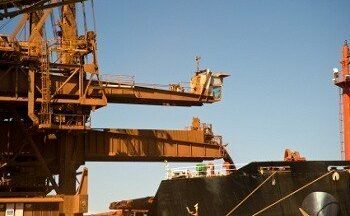Perilous cargo

Gareth Williams from Holman Fenwick Willan on the carriage of sulphur into China.
A carrier’s core obligation under the Hague Rules is, before the voyage begins, to prepare his vessel for the receipt and carriage of the contractual cargo so as to make it fit to meet the reasonably anticipated perils of the voyage, so far as that can be achieved by due diligence. Carriage of sulphur calls for special preparatory steps to separate the cargo from the steel holds, usually in the form of applying limewash or other more modern hold block/slip coat to the holds before loading. But this is more to protect the ship from the cargo than the other way around, because of the corrosive properties of sulphur. However a spate of recent cases involving deliveries into China has highlighted how failure to achieve proper separation between the holds and the cargo can lead to a cargo claim due to contamination of the sulphur by the corrosion product which results from the reaction between the steel and the sulphur if the hold block breaks down. The corrosion product is jet black, which contrasts vividly with the bright yellow sulphur, and gives a buyer who may be reluctant to take delivery in a falling market an obvious pretext to reject the cargo or claim against the carrier to make good a market loss.
But is the cargo truly damaged? Not really. Sulphur is generally used for production of sulphuric acid, a process which requires it to pass through several stages in which foreign matter is melted, settled or filtered out. At most the sulphur suffers cosmetically from discolouration, which however has no economic consequence.
And if it is damaged, is the carrier in reality legally responsible? That depends on why the hold block broke down. If the cause was sloppy application in the first place that would probably attract liability. However the problem is just as likely to result from breakdown of properly applied block when a voyage is prolonged beyond its normal duration, and as a matter of English law that is not something for which the carrier should be held liable.
But whether those defences will hold good depends on the court before which the claims are bought, and the law which that court will apply. Since many of these matters involve cargo shipped to China, it is the courts there whose jurisdiction the cargo receivers will probably invoke, even if the bill of lading provides for disputes to be resolved elsewhere, such as in London arbitration. And the Chinese courts will generally apply Chinese law, which will not necessarily recognise the fact that the carrier is not at fault or that however bad the condition of the cargo might be cosmetically it creates no loss.
The solution? Prevention being better than cure, the first and most obvious step is to make sure the hold block is properly applied in the first place, even if carrier has delegated to his charterer the task of applying the hold block – the carrier nevertheless remains responsible if the job is not done properly. But if the worst happens and the carrier ends up on the wrong end of a Chinese court judgment for a claim which, under the bill of lading jurisdiction clause, should have been adjudicated upon elsewhere, it might be possible to claw back the amount paid under the Chinese judgment from the claimant himself as damages for breach of the jurisdiction clause if it can be shown that had the matter been submitted to the agreed forum and determined by the agreed law, there would have been no finding of liability.
